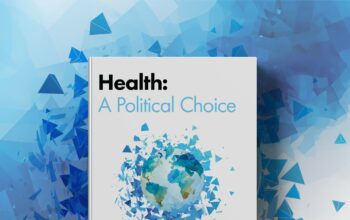Reinforcing Business Integrity for APEC Health Systems Amidst COVID-19
Authors: Dr. Jeff Blackmer, Mr. Thomas Cueni, Mr. Gaston Fernandez, Ms. Nancy Travis, Mr. Russell Williams
The dual health and economic crisis resulting from COVID-19 has brought into sharp focus the importance of ethical business conduct. Emergency government measures, widespread economic and social disruption, as well as unscrupulous actors taking advantage of the current situation for personal gain are testing business integrity for SMEs and health systems like never before. And yet, while far from perfect, APEC economies are also better positioned today than ever before to confront this difficult challenge, in part due to the foundation that has been laid over the last decade by the Business Ethics for APEC SMEs Initiative.
Serving as the world’s largest public-private partnership to strengthen business ethics in the biopharmaceutical and medical device sectors – two industries at the heart of the pandemic – this unique initiative has driven the adoption and implementation of codes of ethics across dozens of industry chambers and associations, including in ten APEC member economies where codes in these sectors did not previously exist. These efforts have extended high-standard ethical business practices to nearly 20,000 enterprises, the vast majority serving as SMEs, in alignment with APEC principles welcomed by APEC Economic Leaders and Ministers. These APEC principles detail strong practices, including measures for enterprises to preserve integrity and legitimate intent while upholding independence and accountability, that are exactly what is needed today amidst COVID-19.
Overseen by the United States with engagement from thousands of organizations spanning every member economy, this leading public-private partnership is housed within the APEC Small and Medium Enterprise Working Group and collaborates with the APEC Anti-Corruption and Transparency Experts Working Group on government strategies to encourage ethical business conduct. Since 2016, the initiative has also facilitated the launch of consensus agreements for ethical collaboration in eight APEC economies consisting of more than 200 parties that span the health system: industry, health care professionals and providers, patients, and governments. Nearly all of these agreements have been activated to reinforce integrity during the pandemic and many are working together to prepare for the aftermath in ways that would have been impossible just a few years ago.
While these successes are worth touting, the gains made through this initiative cannot be taken for granted. Far more is needed to build upon the ethical advances that have been realized, especially as APEC economies turn to a sustainable and inclusive recovery from COVID-19. Health systems will face new challenges and ethical dilemmas, expected and unexpected, born through emerging technologies, supply chain evolution, and even higher expectations from society. Constantly evolving and incomplete evidence on new and repurposed therapies poses ethical challenges somewhat unique to this time in history as health care providers struggle to keep up with daily developments and manufacturers and sellers try and figure out how and when to scale production and increase promotion.
All of this requires building back better than before and not a return to the pre-crisis status quo. Now is the time for all APEC economies to pursue implementation of multi-stakeholder ethical collaborations, such as consensus agreements, as platforms to foster improved health outcomes, patient trust, and innovation. The pandemic also underscores the need for the initiative to pursue ambitious, forward-looking 2025 goals with strengthened ethics guidance.
Agility will be essential to succeed in this crucial work for every stakeholder in the health system, including enterprises in the biopharmaceutical and medical device sectors. We are confident the Business Ethics for APEC SMEs Initiative will continue to lead the way in supporting the region and rise to this occasion in the years ahead.
Dr. Jeff Blackmer serves as Health Care Professional Co-Chair of the APEC Biopharmaceutical Working Group on Ethics under the Business Ethics for APEC SMEs Initiative. He is Vice President for International Health of the Canadian Medical Association.
Mr. Thomas Cueni serves as Industry Co-Chair of the APEC Biopharmaceutical Working Group on Ethics under the Business Ethics for APEC SMEs Initiative. He is Director-General of the International Federation of Pharmaceutical Manufacturers and Associations (IFPMA).
Mr. Gaston Fernandez serves as Government Co-Chair of the APEC Biopharmaceutical Working Group on Ethics under the Business Ethics for APEC SMEs Initiative. He is Division Chief for Regulatory Aspects of Commerce for Chile’s Undersecretariat for International Economic Relations.
Ms. Nancy Travis serves as Industry Lead for the Medical Device Sector Program under the Business Ethic for APEC SMEs Initiative. She is Vice President of Global Compliance and Governance at the Advanced Medical Technology Association (AdvaMed).
Mr. Russell Williams serves as Patient Co-Chair of the APEC Biopharmaceutical Working Group on Ethics under the Business Ethics for APEC SMEs Initiative. He is President of the Diabetes Canada.
Author






